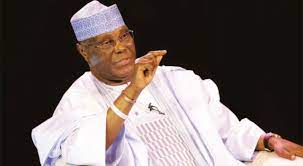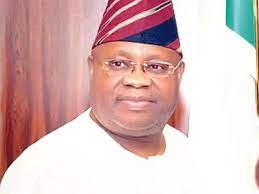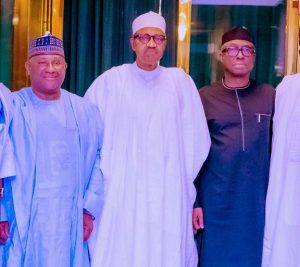President Tinubu Administration’s Economic Policies Not ‘Well-Planned’, ‘Well-Thought-Out’-Atiku

Former Vice President Atiku Abubakar submitted on Sunday that President Bola Tinubu administration’s economic policies are not well-thought-out .
He added that the unification of the exchange rate and other policies were implemented without adequate planning and consultations with the stakeholders.
Team@orientactualmags.com learned that Atiku ,who was the PDP presidential candidate in the 2019 and 2023 presidential elections, submitted in a statement on Sunday that he had become aware that the nation’s economy was heading for the ditch at the twilight of former President Muhammadu Buhari administration.
He has also accused President Tinubu of not effectively presenting his administration’s measures to address the ongoing economic crisis in the country.
‘At the meeting called at his instance on Thursday to address the foreign exchange crisis and the problem of economic downturn, among others, Bola Tinubu failed, yet again, to showcase any concrete policy steps that his administration is taking to contain the crises of currency fluctuation and poverty that face the country.
Rather, he told the country and experts who have been offering ideas on how to resolve the crisis that he and his team should not be distracted and should be allowed to continue cooking their cocktail that has brought untold hardship to the people of Nigeria’ he said.
The former VP said ‘the wrong policies introduced by the Tinubu administration have continued to cause untold pain and distress on the economy and the rest of us cannot keep quiet when the government has demonstrated sufficient poverty of ideas to redeem the situation’.
‘If the government will not hold on to their usual hubris, there are ways that the country can walk out of the current crisis.
After a careful assessment of the state of our economy at the twilights of the last administration, I knew full well that the economy of the country was heading for the ditch and came up with a number of policy prescriptions that would rescue the country from getting into the mess that we are currently in’ he added.
The Waziri Adamawa also recalled that in his 2023 presidential election policy document titled ‘My Covenant With Nigerians’, he had pledged to reform the foreign exchange market by eliminating multiple exchange rate windows, which only benefited opportunists, middlemen, and the fraudsters.
‘A fixed exchange rate system would be out of the question. Firstly, it would not be in line with our philosophy of running an open, private sector-friendly economy. Secondly, operating a successful fixed-exchange rate system would require sufficient FX reserves to defend the domestic currency at all times. But as is well known, Nigeria’s major challenge is the persistent FX illiquidity occasioned by limited foreign exchange inflows to the country. Without sufficient FX reserves, confidence in the Nigerian economy will remain low, and Naira will remain under pressure. The economy will have no firepower to support its currency. Besides, a fixed exchange rate system is akin to running a subsidy regime!
On the other hand, given Nigeria’s underlying economic conditions, adopting a floating exchange rate system would be an overkill. We would have encouraged the Central Bank of Nigeria to adopt a gradualist approach to FX management. A managed-floating system would have been a preferred option. In simple terms, in such a system, the Naira may fluctuate daily, but the CBN will step in to control and stabilize its value. Such a control will be exercised judiciously and responsibly, especially to curve speculative activities’ the statement added .
Atiku, who served as Vice President between 1999 and 2007, also explained that the regulation is essential because ‘Nigeria has insufficient, unstable, and precarious foreign reserves to support a free-floating rate regime’.
‘ Nigeria’s reserves did not have enough foreign exchange that can be sold freely at fair market prices during crises. Nigeria is not earning enough US$ from its sales of crude oil because its production of oil has been declining. And, Nigeria is not attracting foreign investment in appreciable quantities.
These are enough reasons for Nigeria to seek to have a greater control of the market, at least in the short to medium term when convergence is expected to be achieved.
Tinubu’s new policy FX management policy was hurriedly put together without proper plans and consultations with stakeholders. The government failed to anticipate or downplay the potential and real negative consequences of its actions.
The government did not allow the CBN the independence to design and implement a sound FX Management Policy that would have dealt with such issues as increasing liquidity, curtailing/regulating demand, dealing with FX backlogs and rate convergence’ the statement added-
Team@orientactualmags.com Do you have any information you wish to share with us? Do you want us to cover your event or programme? Kindly send SMS to 08059100286, 09094171980. Thank you





